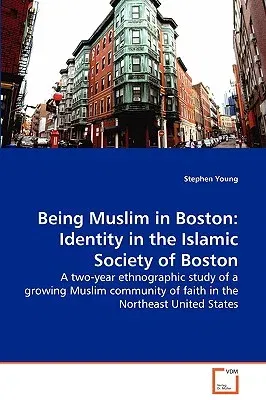Stephen Young
(Author)Being Muslim in Boston: Identity in the Islamic Society of Boston - A two-year ethnographic study of a growing Muslim community of faith in thPaperback, 23 December 2008

Qty
1
Turbo
Ships in 2 - 3 days
In Stock
Free Delivery
Cash on Delivery
15 Days
Free Returns
Secure Checkout
Print Length
268 pages
Language
English
Publisher
VDM Verlag
Date Published
23 Dec 2008
ISBN-10
3639112520
ISBN-13
9783639112528
Description
Product Details
Author:
Book Format:
Paperback
Country of Origin:
US
Date Published:
23 December 2008
Dimensions:
22.86 x
15.24 x
1.42 cm
ISBN-10:
3639112520
ISBN-13:
9783639112528
Language:
English
Location:
Saarbrucken
Pages:
268
Publisher:
Weight:
362.87 gm

